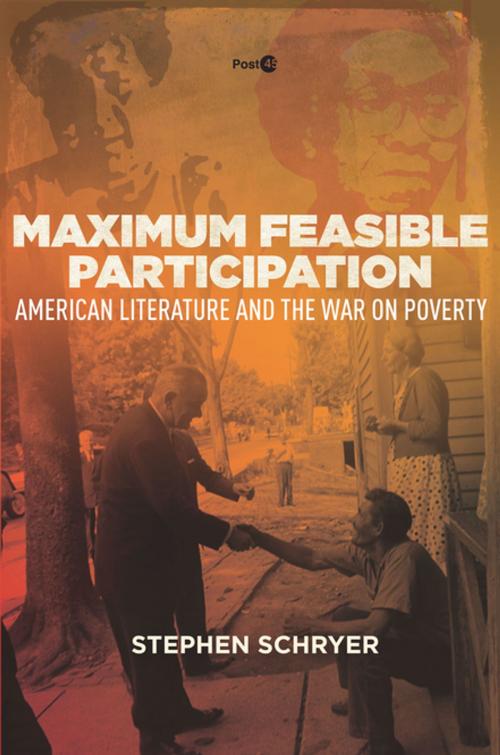Maximum Feasible Participation
American Literature and the War on Poverty
Fiction & Literature, Literary Theory & Criticism, American| Author: | Stephen Schryer | ISBN: | 9781503606081 |
| Publisher: | Stanford University Press | Publication: | June 5, 2018 |
| Imprint: | Stanford University Press | Language: | English |
| Author: | Stephen Schryer |
| ISBN: | 9781503606081 |
| Publisher: | Stanford University Press |
| Publication: | June 5, 2018 |
| Imprint: | Stanford University Press |
| Language: | English |
This book traces American writers' contributions and responses to the War on Poverty. Its title comes from the 1964 Opportunity Act, which established a network of federally funded Community Action Agencies that encouraged "maximum feasible participation" by the poor. With this phrase, the Johnson administration provided its imprimatur for an emerging model of professionalism that sought to eradicate boundaries between professionals and their clients—a model that appealed to writers, especially African Americans and Chicanos/as associated with the cultural nationalisms gaining traction in the inner cities. These writers privileged artistic process over product, rejecting conventions that separated writers from their audiences.
"Participatory professionalism," however, drew on a social scientific conception of poverty that proved to be the paradigm's undoing: the culture of poverty thesis popularized by Oscar Lewis, Michael Harrington, and Daniel Moynihan. For writers and policy experts associated with the War on Poverty, this thesis described the cultural gap that they hoped to close. Instead, it eventually led to the dismantling of the welfare state. Ranging from the 1950s to the present, the book explores how writers like Jack Kerouac, Amiri Baraka, Gwendolyn Brooks, Oscar Zeta Acosta, Alice Walker, Philip Roth, and others exposed the War on Poverty's contradictions during its heyday and kept its legacy alive in the decades that followed.
This book traces American writers' contributions and responses to the War on Poverty. Its title comes from the 1964 Opportunity Act, which established a network of federally funded Community Action Agencies that encouraged "maximum feasible participation" by the poor. With this phrase, the Johnson administration provided its imprimatur for an emerging model of professionalism that sought to eradicate boundaries between professionals and their clients—a model that appealed to writers, especially African Americans and Chicanos/as associated with the cultural nationalisms gaining traction in the inner cities. These writers privileged artistic process over product, rejecting conventions that separated writers from their audiences.
"Participatory professionalism," however, drew on a social scientific conception of poverty that proved to be the paradigm's undoing: the culture of poverty thesis popularized by Oscar Lewis, Michael Harrington, and Daniel Moynihan. For writers and policy experts associated with the War on Poverty, this thesis described the cultural gap that they hoped to close. Instead, it eventually led to the dismantling of the welfare state. Ranging from the 1950s to the present, the book explores how writers like Jack Kerouac, Amiri Baraka, Gwendolyn Brooks, Oscar Zeta Acosta, Alice Walker, Philip Roth, and others exposed the War on Poverty's contradictions during its heyday and kept its legacy alive in the decades that followed.















